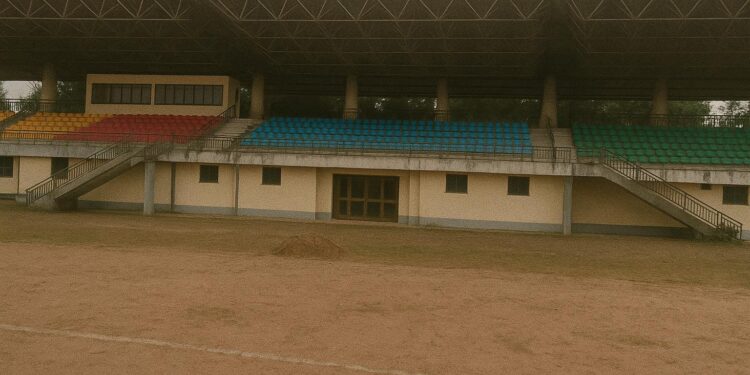A stadium reimagined for reconciliation
Few arenas carry the symbolic weight of Kinkala’s omnisport stadium, once a silent witness to tensions that periodically unsettled the Pool region. After weeks of coordinated clean-up operations led by Mayor Edwige Ndebeka Biyengui, the venue now gleams under the equatorial sun, ready to host the 27 July 2025 friendly between Pool and Djoué–Léfini. Local media record that more than three hundred volunteers, ranging from municipal employees to student associations, took part in the overhaul, scrubbing terraces, repainting changing rooms and clearing the surrounding savannah paths. The stadium’s transformation offers a concrete illustration of how physical infrastructure can be repurposed as a stage for reconciliation.
Youth universities as soft power laboratories
The match forms the flagship event of the second edition of the Pool Youth Universities, an initiative introduced after the 2021 departmental development consultations and supported by the Ministry of Youth and Civic Education. Structured workshops on conflict-sensitive communication, digital entrepreneurship and environmental stewardship flank the sporting programme, turning the gathering into a laboratory of soft power. Organisers emphasise that the curriculum aligns with the government’s broader Plan national de développement, which positions youth as both beneficiaries and custodians of national stability. The presence of parliamentarian Elbe Biscay Bidié, himself a former semi-professional footballer, underscores the political clout accorded to this forum.
Local governance nurturing peace dividends
Mayor Ndebeka Biyengui’s stewardship reflects an increasingly decentralised approach to governance championed in recent policy papers by the Ministry of Territorial Administration. By entrusting municipal leaders with high-visibility events, Brazzaville signals confidence in local capacities while fostering a sense of ownership at the grassroots level. Speaking to regional radio, the mayor praised “an obedient and forward-looking population” whose diligence, she argued, proves that peace dividends are tangible. Her rhetoric dovetails with statements from the African Union’s early-warning mission that highlighted how municipal investment can temper residual grievances following the 2016 insurgency in the Pool.
Economic hopes woven into grassroots sport
Beyond symbolism, organisers expect the match to catalyse micro-projects in agribusiness, carpentry and digital services. The Youth Universities’ steering committee has earmarked a revolving fund of five million CFA francs to seed modest ventures, while a partnership with the national employment agency facilitates mentorship. According to Deputy Bidié, “football is only the spark; sustainable income is the true victory.” His remarks echo United Nations Development Programme assessments that link livelihood opportunities to long-term peace consolidation in post-conflict zones. A consortium of local banks has already signalled interest in co-financing cooperative enterprises that emerge from the event’s hackathon-style workshops.
Regional dynamics and national stability
Diplomatic observers note that stability in the Pool carries outsized strategic value, given its proximity to the capital and to key transport arteries feeding Pointe-Noire’s export corridor. The forthcoming match thus resonates beyond sport, operating as a confidence-building measure amid complex regional dynamics that include cross-border trade with the Democratic Republic of Congo and evolving security calculations in the Gulf of Guinea. While the International Crisis Group credits Brazzaville with maintaining a pragmatic dialogue with community leaders, analysts nonetheless stress the need for continued investment in social infrastructure to forestall economic disenchantment.
Perspectives on sport-mediated peacebuilding
The Kinkala fixture speaks to a broader continental trend in which football doubles as diplomatic currency. From Rwanda’s cycling diplomacy to Senegal’s basketball academies, African governments increasingly exploit sport’s mass appeal to reinforce national narratives of unity and modernity. In the Congolese context, the government’s cautiously optimistic messaging aligns with research by the Institute for Security Studies, which finds that contact sports can reduce inter-group prejudice when embedded in longer-term civic initiatives. The July match will be streamed on Télé Congo, offering a potent image of a region once marked by volatility now celebrating fair play. Even if the scoreboard remains uncertain, the mere kick-off will mark a quietly significant victory for cohesion, echoing in households far beyond the boundary lines of Kinkala’s renewed stadium.











































